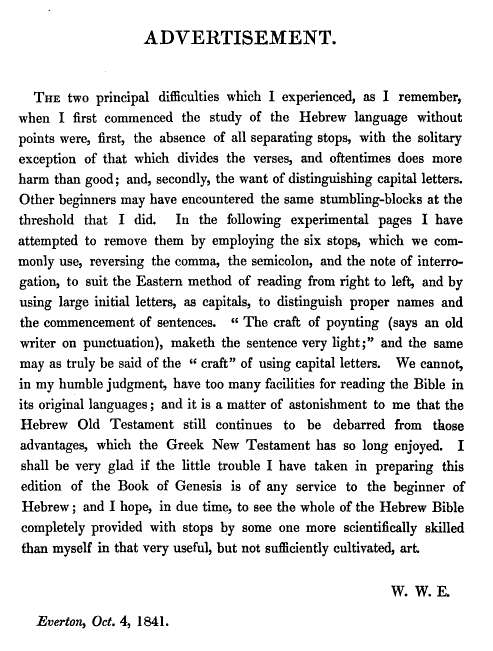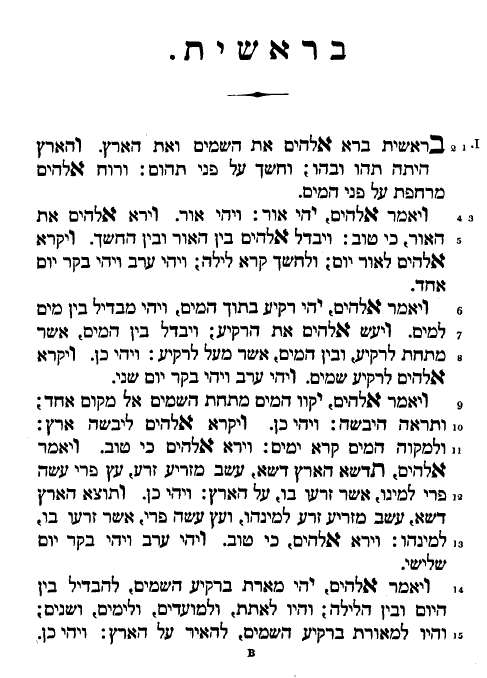So it is that many Christians and others, desiring to learn to read Hebrew, consistently complained about the difficulty occasioned by the nekkudot, or points. This occasioned periodic suggestions that the points aren't really necessary, or at least tapped into the existing theological and historical controversies about them.
In 1841 a British minister named William Withers Ewbank identified a further problem and came up with an original solution - his edition of Genesis, called "בראשית · The Book of Genesis, in the original Hebrew without points, but with Stops and Large Initial Letters (edited as an experiment)." That is to say, he felt that the lack of normal (=European) punctuation, as well as the lack of capital letters to indicate proper nouns, made Hebrew more difficult. So his version includes both features. Not only that, he took care to do something which - to my dismay - modern Hebrew never chose to do to this very day: his commas point to the right!


Take a look at the question marks in the story of Cain and Abel:

